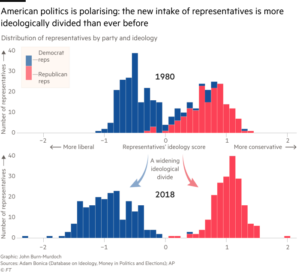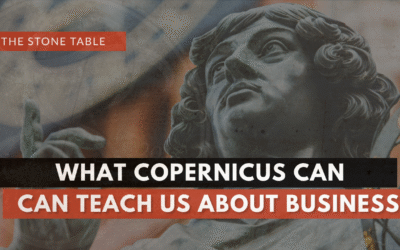A Constant State of Road Rage: Politics, Power, and Jesus

This article is an adaptation of my sermon notes from a message I preached at Brownsburg Vinyard Church called Jesus and the Positions of Power. Thanks to my friend, Dr. Jason Kennedy, for sharing some of his past sermon notes with me which are reflected in the section on tribalism. I hope this speaks to you in some way during this turbulent time.
I think of myself as a pretty even-keeled guy most of the time. I’m relatively level-headed, measured, I think things through. That is, unless I’m watching my Colts play football (it’s not a game until I’ve screamed the dogs into a terror-filled panic under the dining room table), or…
I’m driving in my car.
Does anyone else struggle with occasional road rage? I’m like David Banner when I drive until you honk your horn at me right as the light turns green or you try to pass me on a roundabout (seriously?). Then I’m capable of going full-on Incredible Hulk on you. It’s part of my spiritual maturity that Jesus is still working on.
On long road trips, my kids take bets on how many minutes will go by before I call another drive a Jackwagon (my aggressive driving word of choice). Thank God the Gospel is still doing its work in me.
Doesn’t it sort of feel like the whole world is in a constant stage of road rage right now?
Everything is aggressive.
Everything is offensive.
Everything is emotionally charged.
Everything is a power play.
Power, aggression, and dominance are the currency of the world. The culture trades in it. This combative undercurrent of our society, along with social media and the hyper-individuality of our day, has steadily polarized us. And perhaps this can be seen nowhere better than the world of politics.
Political Tribalism and Polarization
Check out this chart that shows the polarization of the two major party platforms over the last 40 years. As recently as the 1980s, the ideologies were closer together. In some areas, they even overlapped. Today, they are manically pushing farther and farther to the outside.

We have become a tribalistic society. This isn’t new. Mankind has arranged itself in tribes since ancient times. We like hanging out with people who share our worldview. We even see tribes in Scripture. These were typically family groups with common ancestry and land.
Tribes can be good things, but there is also a dark side.
At it’s best, tribalism brings together a group of people with common ideals to work for a unified goal. At it’s worst, tribalism becomes a win-lose narrative, a zero-sum game, and irrationally disorients people to the truth.
Irrational Hatred
Think about this through a sports lens. If you’re from Indiana, I can send you on a road rage incident with three simple words: New England Patriots. Somewhere right now a Colts fan just punched a hole in their drywall.
While this rivalry certainly isn’t what it used to be when Peyton Manning and Tom Brady were under center, it still triggers a visceral response in me. When the Patriots lose a game, any game, my countenance goes up (that’s a part of my spiritual maturity Jesus is still working on, too).
It’s true though, isn’t it? I despise the New England Patriots simply because they’re the New England Patriots! And while this tribal mentality is fun as a sports fan, it has much darker consequences in the realm of 21st Century politics.
The customization of everything through individualized screens, news feeds, and the reinforcement of our personal preferences and perspectives we can carry around in the palm of our hands has only added fuel to this tribal human instinct. When unity or cooperation is needed, tribal power has become the only mechanism we know: shouting down, threatening, canceling, overthrowing.
Power is the world’s currency, but the Gospel reorients our relationship with power. The Kingdom of God is beautifully upside down and backward, and the world’s power narrative is not Jesus’ Gospel narrative.
How Did Jesus Handle Power?
Against the backdrop of this contentious election season, let’s take a look at how Jesus approached the power narrative.
In Matthew 20, Jesus’s disciples were arguing about which of them would be the greatest. They were certain that Jesus was a political conqueror ready to overthrow Rome and return Israel to its place of pre-exile dominance, so they were angling for positions in the new Jesus administration. As he often enjoyed doing, Jesus threw them for a loop:
“But Jesus called them together and said, “You know that the rulers in this world lord it over their people, and officials flaunt their authority over those under them. But among you it will be different. Whoever wants to be a leader among you must be your servant, and whoever wants to be first among you must become your slave. For even the Son of Man came not to be served but to serve others and to give his life as a ransom for many.”
–Matthew 20:25-28
Jesus completely turns the definition of leadership on its head! Leaders aren’t power brokers, leaders are servants! Leaders don’t “lord over,” they “serve from under.” Jesus says, “Hey, don’t expect to live in the lap of luxury here guys. My Kingdom isn’t about you having people kiss your ring and attend to your every whim all day. In my Kingdom, the most powerful is last, the most powerful serves. In fact, I’m going to show you the way by literally dying.”
Dirty Feet
Which leads to one of the most powerful visuals Jesus ever gave us about his definition of power:
“Jesus knew that the Father had given him authority over everything and that he had come from God and would return to God. So he got up from the table, took off his robe, wrapped a towel around his waist, and poured water into a basin. Then he began to wash the disciples’ feet, drying them with the towel he had around him.”
–John 13:3-6
What do you do when you realize you’re the one with the most power? Jesus had all authority. He was literally God incarnate. And because of that…
He washed feet.
Who else do we see washing feet in the Bible? The sinful woman. The lowly outcast. In this game-changing moment, Jesus inverts the power structure of His Kingdom. The one with the most power, the Almighty Himself, is the first one to serve.
This has become the unofficial motto of our company: We Wash Feet. We discuss it each week on our all-staff conference call. It’s what we try to celebrate. When we have “power” over someone else, we humble ourselves and use that power to serve those who don’t have power.
Drunk with Power
We’re watching the opposite in so many places around our country today. Political leaders are drunk with power and are leveraging their positions not to serve and empower others, but to lord over and control. This is not what Jesus showed us and I don’t believe it’s what Jesus empowered us to do.
“Don’t copy the behavior and customs of this world, but let God transform you into a new person by changing the way you think. Then you will learn to know God’s will for you, which is good and pleasing and perfect.”
–Romans 12:2
The pattern of this world is power for control and self-benefit.
The pattern of the Gospel is power for service and self-sacrifice.
Jesus reorients our relationship with power.
Our Tribe Is Jesus
As I write this, we are a week out from one of the most contentious Presidential elections of my lifetime. It’s in these hyper-emotional moments I have to remind myself to be interested in politics and obsessed with Christ’s Kingdom. Our tribe is Jesus.
I don’t care if you believe in bigger government or smaller government, believers unify around Jesus. Everything else is subservient. Whoever wins the White House, our allegiance does not change. Our identity is Christ, not a donkey or an elephant.
Does that mean I don’t care about politics or who is in power? Of course not. There are some big things at stake this year and elections do have consequences. But whoever wins the first Tuesday in November, Jesus is Lord. This will be true on inauguration day, too.
Whether it’s a Trump or Biden (or Kanye) administration, our “Candidate” has the same calling for each of us:
Whatever power we have, big or small, is given to us to serve and sacrifice. We are called to keep doing that whoever is President.



